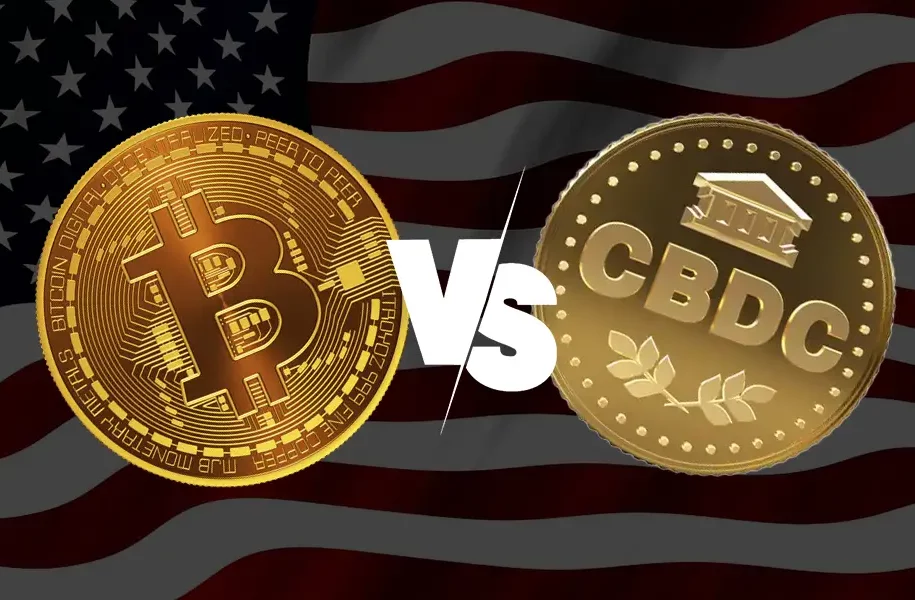Bitcoin vs. CBDC: Kennedy Takes on Biden Administration

Robert F. Kennedy Jr., a prominent environmental lawyer, and Democratic candidate for the 2024 US presidential election has recently spoken out in support of cryptocurrencies such as Bitcoin as a way for the public to escape what he sees as a flawed financial system.
Kennedy’s support for cryptocurrencies and concerns over CBDCs
In a statement, Kennedy criticized the Federal Reserve and large banks for their role in printing trillions of dollars over the past decade, which he believes has contributed to a financial bubble.
He argues that cryptocurrencies like Bitcoin provide an alternative to traditional financial systems and can help protect people from the risks of an inevitable economic downturn.
Kennedy also accused the Biden Administration of being hostile towards cryptocurrencies and colluding with big banks to maintain control over the financial system.
He believes the government’s hostility towards cryptocurrencies is driven by a desire to maintain control over the monetary system and prevent people from accessing alternatives that could threaten their power.
In addition to his criticism of the Biden Administration, Kennedy expressed concern about developing a CBDC in the US, warning that it could lead to “financial slavery and political tyranny.”
READ MORE: Bitcoin’s 80% Surge in 2023: A Positive Omen for its Future?
He believes that CBDCs would give the government unprecedented control over the monetary system and could be used to monitor and control people’s financial activities.
The Biden Administration’s stance on CBDCs
In July, the Federal Reserve is set to launch a new digital payment and settlement service called FedNow. According to the Fed, this service’s goal is to allow businesses and individuals to make instant payments around the clock.
However, it remains uncertain whether or not the service will rely on central bank digital currencies (CBDCs) for payment processing.
The Biden Administration has also signaled its interest in exploring the use of CBDCs to issue digital dollars. Some see this move as an attempt to modernize the monetary system and provide greater flexibility and efficiency in financial transactions.
Kennedy and others remained skeptical of the government’s intentions and worried that CBDCs could be used to exert greater control over people’s financial lives.
Federal Reserve’s Instant Payment Service
The Federal Reserve has created a new payment infrastructure called FedNow Service, which allows financial institutions of all sizes in the United States to offer instant payment services that are secure and efficient.
READ MORE: US Banks Leave Customers High and Dry with Zero Warning
However, some are concerned about the level of control and freedom that the government has, which is similar to China. The government maintains control over the public through monetary control, making cryptocurrency an escape from this control. This may be why the US government is opposed to cryptocurrency.
FedNow Service is set to launch in July and will enable money to be transferred from the sender’s account to the recipient’s account in near real-time, 24/7.
While the Clearing House, a bank-owned association, already offers a real-time payment option, FedNow Service will provide an additional choice for businesses and consumers.
Bitcoin vs CBDC
The technologies of central bank digital currencies and cryptocurrencies may appear similar to those unfamiliar with them, given that they are both digital currencies.
However, it would be inaccurate to equate the two. Even if CBDCs incorporate distributed ledger and blockchain elements, they do not offer the same benefits as DeFi or Web 3.0. Essentially, CBDCs are digital versions of fiat currency.
READ MORE: How Fidelity and Bank of America Became Indirect Owners of Bitcoin
In contrast, decentralized cryptocurrencies like Bitcoin serve as a counterbalance to CBDCs, as they provide a means of holding assets that are immune to government seizure and not restricted by borders.
According to macro expert Lynn Alden, distributed systems will become more prevalent as society moves away from traditional banking.
Alden views CBDCs as an end-game scenario resulting from a growing trend toward financial control and monitoring, and she generally holds a negative opinion of them.
Conclusion
The advantage of cryptocurrency lies in its long-standing presence, and it is likely better comprehended than CBDCs. This could be the reason why public sentiment appears more favorable towards crypto than CBDCs.
Nevertheless, there is a sense that CBDCs are unavoidable.
Crypto has faced recent setbacks, but it is improbable that those who are well-versed in cryptocurrency will be persuaded by the potential advantages of CBDCs. This is due to their privacy risks and limited usefulness in the DeFi and Web 3.0 domains.
However, for individuals entering the financial system for the first time, selecting CBDCs or cryptocurrency could be more challenging.
The main question remains – can the crypto economy and CBDCs coexist?
















